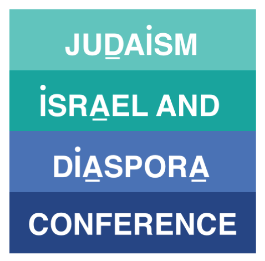
What Jews Don’t Talk About When They Talk About Jews. And Who Does the Talking.
By Diana Bletter
The same morning that the “Judaism, Israel and Diaspora” Conference was set to begin at the International Convention Center in Jerusalem on Wednesday, October 31 – with a roster of speakers about to examine diverging definitions of Judaism, world Jewry and Jewish identity – Israeli police stopped women from bringing into the Kotel, or Western Wall, Torah scrolls to pray with at Rosh Hodesh services for the start of the Jewish month of Heshvan.
The two events happened almost simultaneously, almost as if there were two sets of people replying to the same question about who owns Judaism, who gets to authorize it, and who serves as its gatekeepers. One set of people was exploring these queries in an academic forum sponsored by Haaretz newspaper, The Jewish Agency for Israel, The Hebrew University of Jerusalem and the Ruderman Family Foundation; the other set was comprised of more than two hundred women trying to claim the right to their own interpretation of Judaism, attempting to change the facts on the ground, in real time.
Nashot haKotel, or Women of the Wall, has worked since 1988 to enable women to be allowed to pray together (out loud) and read from a Torah scroll at the Kotel while the Western Wall Heritage Foundation, the Orthodox Israeli group recognized by the government as the Kotel’s guardians, prevented the women from practicing their vision of Judaism, saying that the women with the Torah scrolls were behaving in a “provocative and political” way.
2 comments on “What Jews Don’t Talk About When They Talk About Jews. And Who Does the Talking.”
Comments are closed.




I really enjoyed reading Mrs. Bletter’s article. It saddens me that most of the speakers were men (most likely all white , what happened to Ethiopian Jewry?) These issues are very important to be addressed- Judaism belonging to all- women that are trying to create a new form of Judaism to accommodate them as well.
Very interesting article. Thanks Bletter the opportunity to hear a sharp woman’s perspective on the conference. Be’ezrat Hashem more feminine voices will be heard and the gap between sexes within our religion will finally be bridged.